Explore to eCampus at Adelphi University.First, below is the Adelphi University Ecampus homepage. An eCampus typically refers to an educational institution's online or virtual learning platform. Adelphi University's eCampus is likely to offer a range of online courses and resources, providing students with flexibility in their learning experiences. Online platforms often include tools for communication, collaboration, and accessing course materials. If you registered that service, you can find below modules. Frequently used modules are Moodle Course Management, Class and Gmail. In the class module, you can check and process information such as course registration, grade confirmation, payments, scholarships and loans. Below is a window showing the modules of the actual class. If you go into the moodle for each subject, the professor, learning objectives, and scoring method are introduced as follows. Depending on the professor, some classes are shown for an entire semester as shown below, while others are updated weekly. There is a checklist for each module as shown below, so you can check if you missed anything. If you want to take online classes, you'll need to become familiar with VoiceThread. You can listen to lectures here and upload your assignments in the form of audio or video. I completed the online master's program in a year and a half, including summer semesters. Tuition needs $26,586.
I did my best for a year and a half and was able to graduate with a GPA of 4.0. I did my best, so I have no regrets and am proud of myself. Above all, through this process, I gained confidence that I could become independent as an artist in the United States. I also gained the experience and knowledge to provide more professional guidance to students who want to learn drawing from me. If you calculate all of this, you can see that it is not a wasted amount. Personally, I think it was more rewarding than wasting time and money offline.
0 Comments
Finally, I graduated with a master's course at Adelphi University!This is a master's degree earned after 20 years. 20 years ago, my degree was earned in Korea. At that time, my major had nothing to do with being an artist, and I had the illusion that I would continue to live with that major. But life is something that no one really knows. I couldn't have predicted whether I would go to Germany, become an artist, and then come back to the United States and try a new field. And personally, I would like to confidently say that studying at Adelphi School was the best choice. Various achievements prove how much of an impact what I learned through this graduate school program had on me. Through this process, I presented research and published five children's books, and it was a great opportunity to further solidify my identity as an artist and art educator. Above all, the professors I met through the course were the best. I experienced this course as not only academic study, but also healing thanks to the professors' consideration and encouragement. More than anything, I am grateful to be able to share these accomplishments and gratitude through this blog. Reviews of online classes.I am now about to graduate finally. As I approach graduation, I would like to post a review of my online master's program.
It is true that I had doubts about online classes before I first registered for this class. And on the other hand, there was an expectation that since no one was watching, students would be able to take classes much more comfortably than offline. Because I am a full-time working artist, I have relatively limited time. After considering various advantages such as time and economic feasibility, I decided to enroll in an online master's program. And I am very satisfied with the conclusion. And what is different from what I expected is that after taking this class, I have rarely been able to comfortably go to bed before 11 o'clock. I studied really intensely. That's why I'm very satisfied with the results. First of all, online classes have the advantage of freeing me from the burden of commuting to school, allowing me to choose my own time and create a reasonable schedule. If I had to commute to school due to my limited schedule, I don't think I would have been able to take classes relatively effectively. Second, it was very helpful in learning related skills online, such as video editing, data editing and visual narration, presentations, voice recording, and effective vocalization and expression of opinions. By the end of the semester, I was able to create my own beautiful portfolio using video editing tools. Third, I was able to see other students' work in detail. Constant discussions, encouragement, and sharing of materials with them online really helped me fully understand the class. Fourth, I did not become lazy. As I said before, I was a bit relaxed about my first online class. In short, I underestimated it. However, it didn't take long to discover that studying online was more intense than offline. While offline classes are often one-sided, online classes often require students to take the lead, making it impossible to take classes in the traditional way of passively listening to lectures and following along with the content organized by the professor. Naturally, students become active and active. Fifth, there is the advantage of being able to see the trees and forest as a whole. In offline classes, there are not many opportunities to remind yourself of the entire class after the class is over. In most cases, what you have learned through midterm and final exams often evaporates. However, online is very helpful in organizing detailed and overall content because it is possible to go back to the previous module's categories and study the parts you did not understand. Through my master's course, I was able to create many personally useful professional portfolios and presentation files, and most importantly, I was able to compile the results and publish five children's books during this semester. I think my decisions last year were excellent. Compared to general offline tuition fees, it is evaluated to be highly economical. Educational Theatre, Storytelling and the arts, MACOURSE DESCRIPTION: Literature, art, music, and new media created for adolescent or young adult audiences strongly influence how youth construct themselves and interact in their social worlds. Educators who ignore youth culture, as played out in the media and the arts, lose an invaluable site of engagement for their students. Through studies of primary texts, as well as critiques, we will engage current literary theories including response theories and cultural studies. Participants will also experience and critique pedagogical practices related to adolescent literature in the classroom, including methods of integrating literature and media studies into all areas of the curriculum. COURSE DESCRIPTION: This course will examine artistic development from infancy through adulthood with an emphasis on how sound art education can support, enrich, and nurture cognitive, emotional, and social development. Classic and contemporary theories in the field of educational psychology and art education will be examined, various media and learning will be addressed, and students will be encouraged to connect experiences from classroom observations and their own histories to course discussions and projects. Modules will address teaching through readings and fieldwork, with extension activities and opportunities during other times (studio lesson explorations, school visits, and museum/performance field trips). COURSE DESCRIPTION: Students will explore the rich potential of education-focused creative and expressive arts-visual arts, creative drama, music, dance, and movement, as an educational methodology for students with disabilities. Along with building a repertoire of teaching tools and strategies, students will engage with and examine learning styles, communication and expressive modalities, planning, assessment of special populations, and current research leading the way. COURSE DESCRIPTION: This course examines the nature of aesthetic experience as a unique and powerful way to know self and world. It attempts to uncover connections between arts and education and help arts educators (and other creative teachers) articulate mission statements for the role of the arts in education (and the arts in their own teaching). COURSE DESCRIPTION: Students will apply educational theatre strategies to enliven learning about Shakespeare. They will explore a range of character development and scriptwriting strategies to develop original characters and monologues inspired by Shakespeare’s language and historical period. COURSE DESCRIPTION: Students will explore how to utilize theatre inclusively in classroom, workshop, or professional development settings to foster creative expression and critical thinking for adolescent learners. Students will develop tools to implement and facilitate theatre lessons that encompass all areas of theatre study: theatre history, acting, production, and technical theatre. COURSE DESCRIPTION: Students will explore the history, foundations and methods of creative dramatics, including theatre games, creative movement, story drama, playmaking, applied theatre, and drama-based instruction, among others. They will explore the role of literature and script writing in the creative dramatics curriculum. COURSE DESCRIPTION: Through creative exploration of spoken word poetry and storytelling, students will discover engaging ways to support the oral language and literacy development of culturally and linguistically diverse learners. They will develop their own expressive literacy skills through creative speaking and writing, exploring the musicality and sensory richness of human language. COURSE DESCRIPTION: Students will explore contemporary and traditional crafts made by hand in various media (e.g. fiber, clay, papercraft) in terms of education contexts and digital learning communities. Topics such as community weaving projects, yarn bombing and guerrilla art, and the development of sensory skills through hand-made objects will be addressed. COURSE DESCRIPTION: This introductory museum education course explores museum education's principles, processes, practices, and current innovations. It explores the various learning modes in museums, including how educational programming can engage diverse audiences and methodological approaches to object-based learning in a museum setting. Topics include art education, contextual visual thinking, active learning strategies, and other related processes, reflected in the weekly modules. Through posted discussions, virtual and in-person site visits, and critical thinking projects, students will have the opportunity to begin their investigation of educational and artistic programming in museums. COURSE DESCRIPTION: Candidates conduct an arts inquiry project, which may include traditional research, new media curriculum development, action research, service learning, or field based inquiry. Special topics will be offered. Candidates complete “synthesis” phase of their portfolio. *Recommended in final semester before or during student teaching.
Masters Seminar in Arts EducationThis class helped me clarify my concept of a teaching artist and find keywords that would become my vision, philosophy, and symbol as a teaching artist. A teaching artist is a professional artist who also works as an educator, combining their artistic expertise with teaching skills to engage and educate students. Teaching artists bring their creative talents into educational settings, such as schools, community centers, museums, and other learning environments. Their goal is to inspire and guide students in developing their artistic abilities while fostering a deeper understanding and appreciation for the arts. Teaching artists often collaborate with classroom teachers to integrate arts education into the broader curriculum. They may lead workshops, residencies, or long-term programs, tailoring their instruction to align with educational goals and standards. Through hands-on activities, discussions, and projects, teaching artists aim to nurture creativity, critical thinking, and self-expression in students. This class started with the setting that I would have the opportunity to explain my work to future juniors and people. "Please introduce your precious artifacts to future art educators so they can learn about your current art experiences! Please share the following in a 2-3 paragraph letter with a small sketch or photo." The assignment with the title was interesting and beneficial. Through this class, I was able to think about research-based art and read Elliot Eisner's papers that became the basis of this theory. This class was a time to look back on my records, life, and career as an artist, which will serve as a cornerstone for creating the final portfolio. Through this class, I was able to write an artistic mission statement in your portfolio. At the same time, I created a website for my portfolio in WordPress. artteller23.wordpress.com/ Through this class, I learned how to analyze and approach my artwork in a more research-based way. Through this class, I was able to summarize what I learned about art education. This class was a fun time to create my own trading cards while considering symbolism. This class was a time to summarize my teaching statement and educational philosophy as an artist. This class taught me how to write an infographic resume as an artist. This class allowed me to create a portrait research portfolio. This time I will be encouraged to write research interview questions for the teacher or artist. During this class, I asked interview questions to the artists and teachers I was researching and organized the answers. In this class, I learned how to visually and analytically process interview data back into secondary data. In this class, additional interview questions were organized and made into a presentation file. In the final class, I completed my own capstone portfolio. Through this class, I was able to complete my own wonderful capstone portfolio. Compared to the one I made before learning theories and methods, this portfolio is a perfect portfolio that is more professional, logical, and artistically sophisticated. I think it was very valuable that I was able to create my own portfolio that will remain as a long-lasting record through this class. This is very rewarding, not only because it is a product of this class, but also because I have a tool that I can continue to use as an artist in the future. |
Myungja Anna KohArtist Categories
All
Archives
July 2024
|
Proudly powered by Weebly

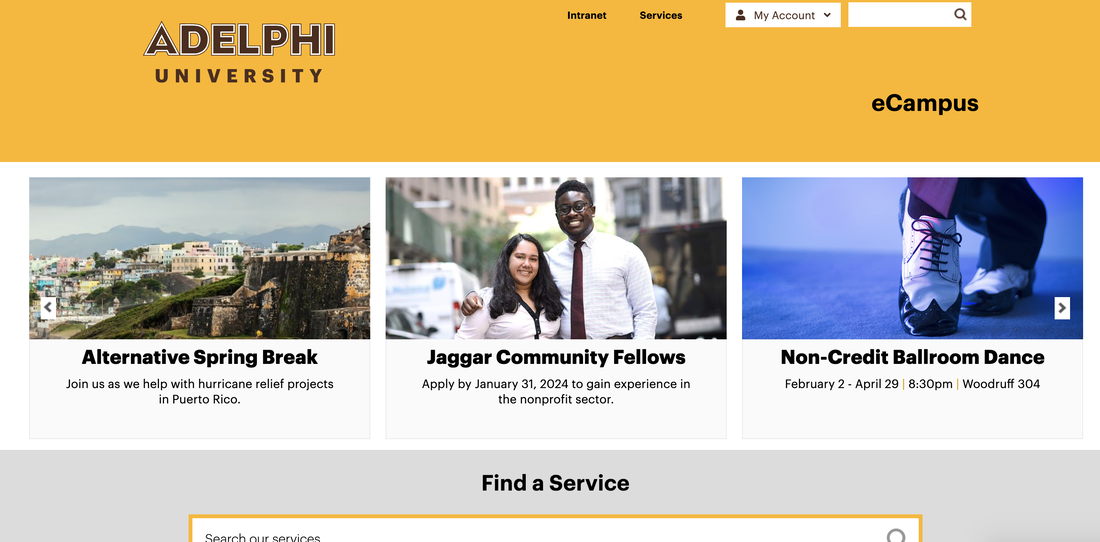
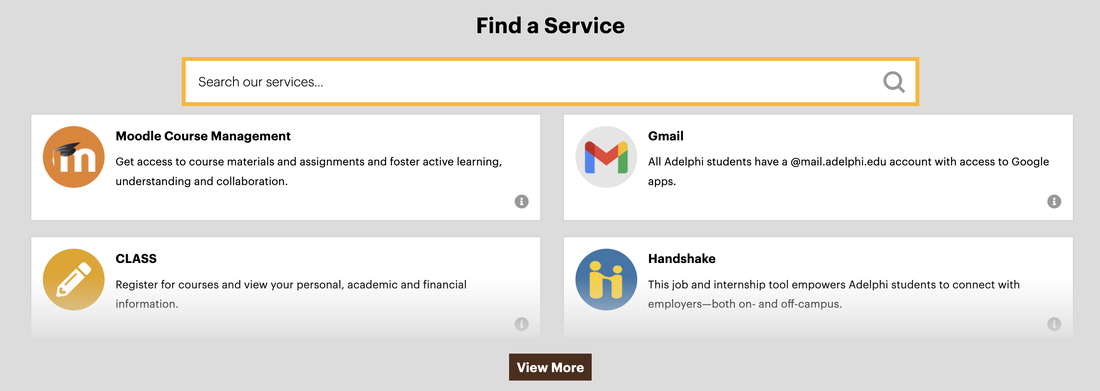
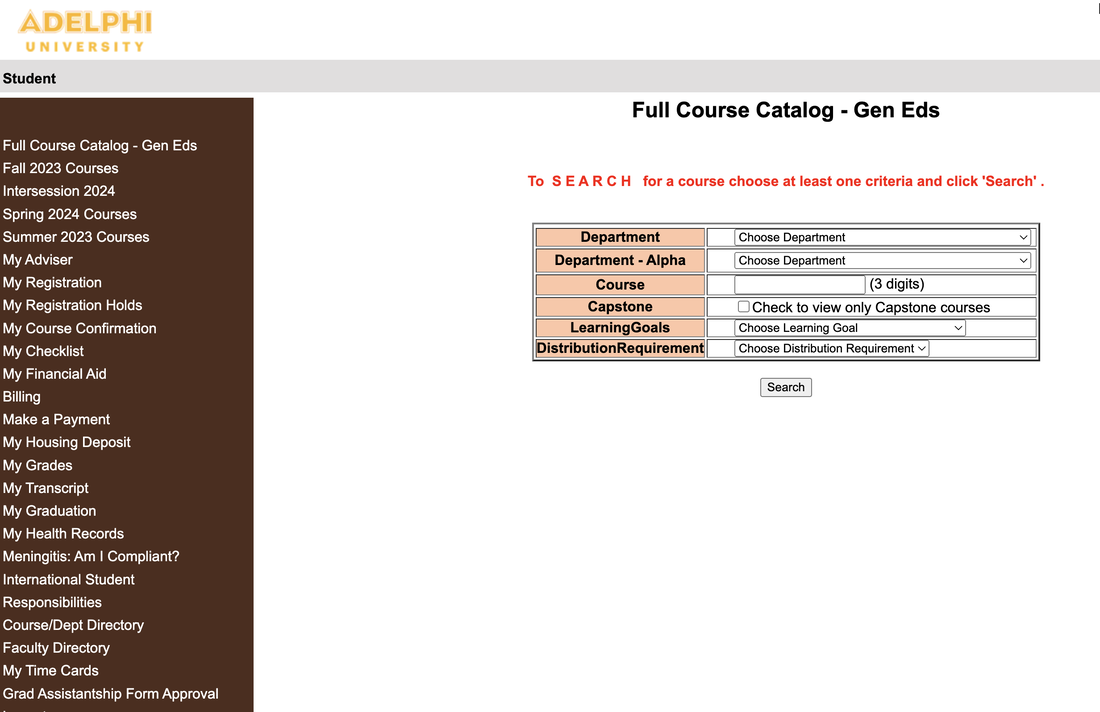
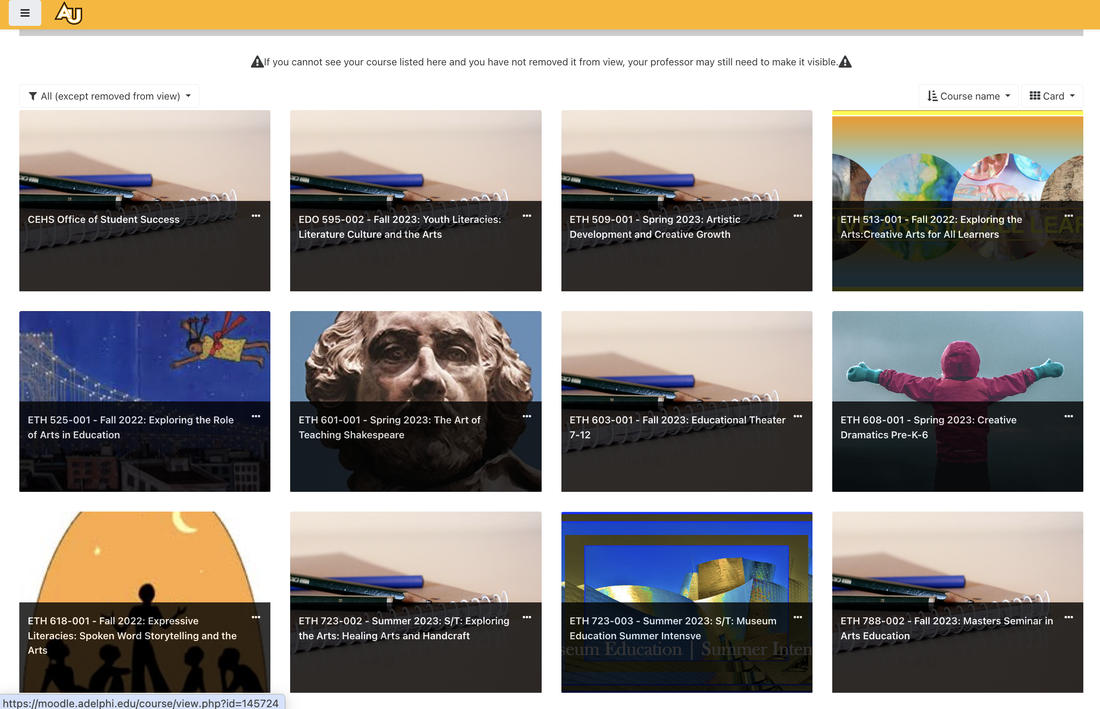
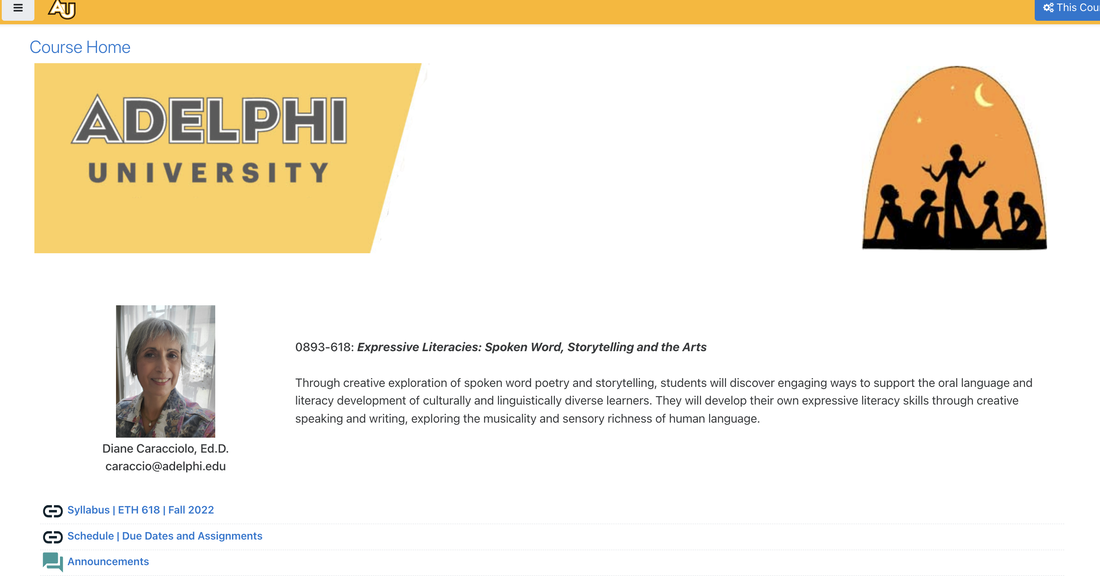
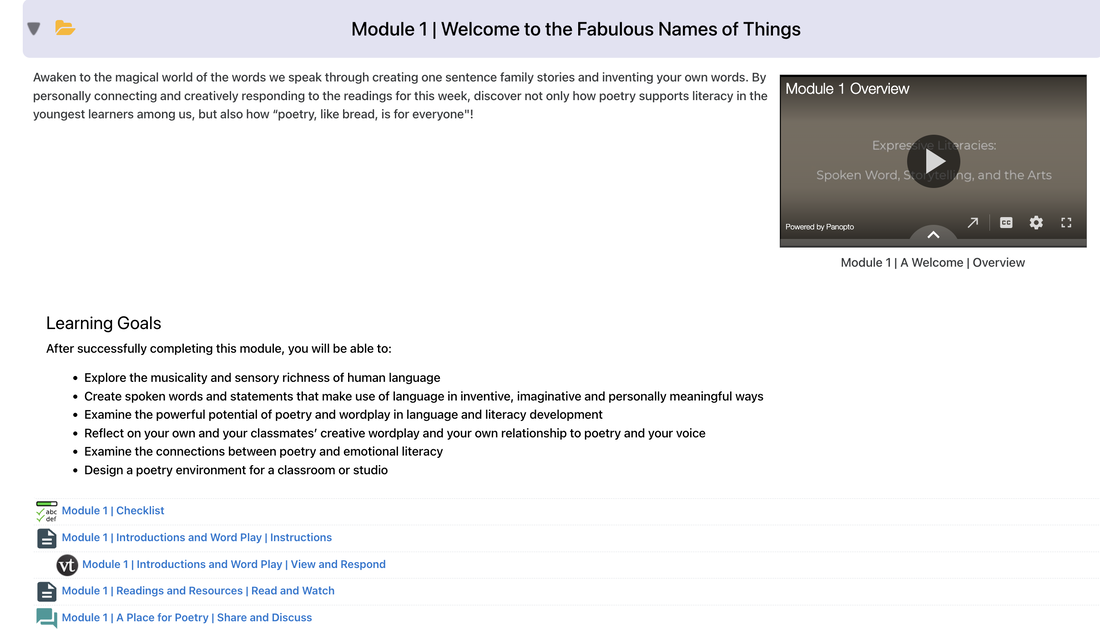
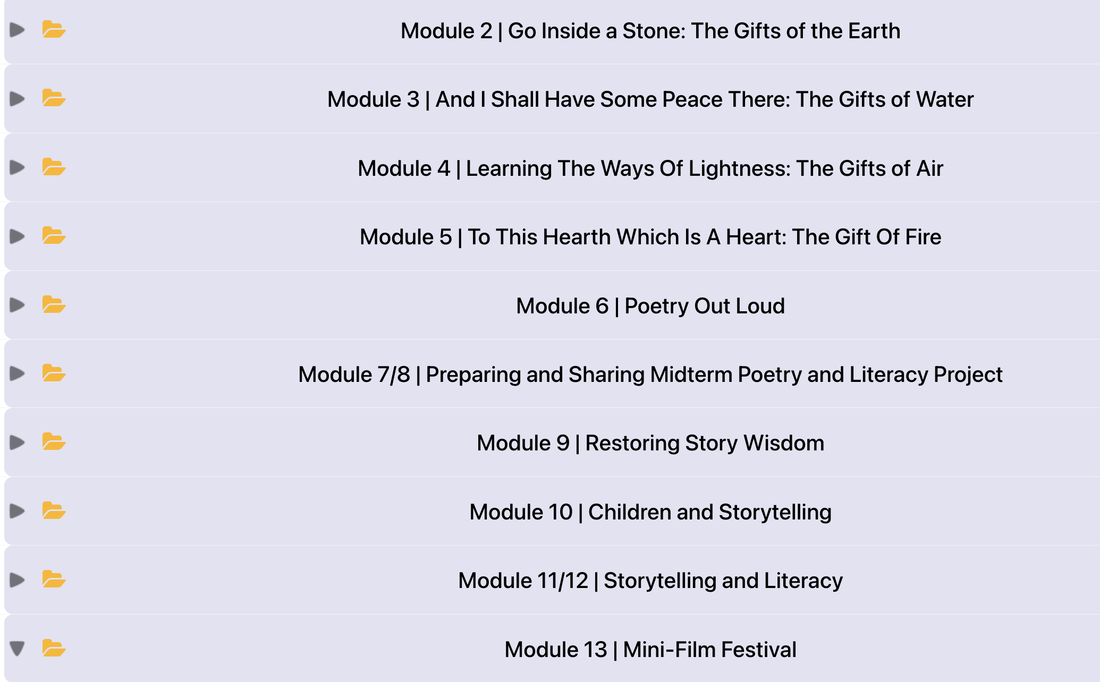
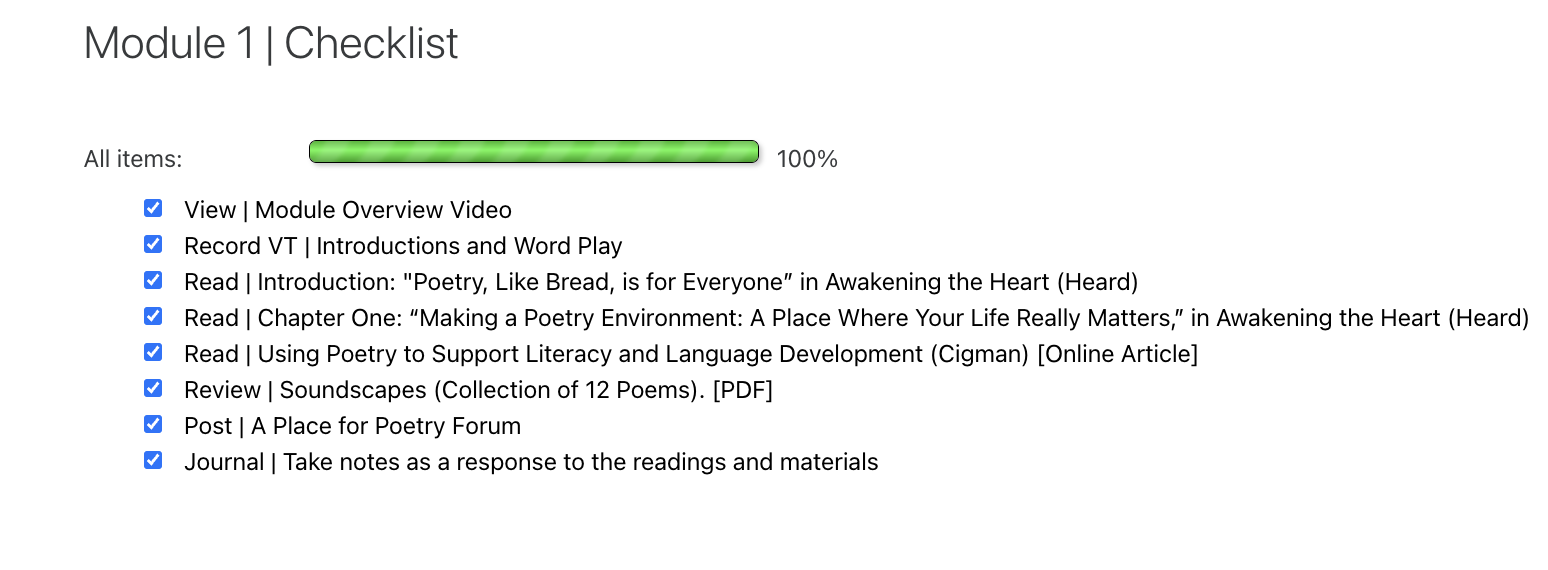
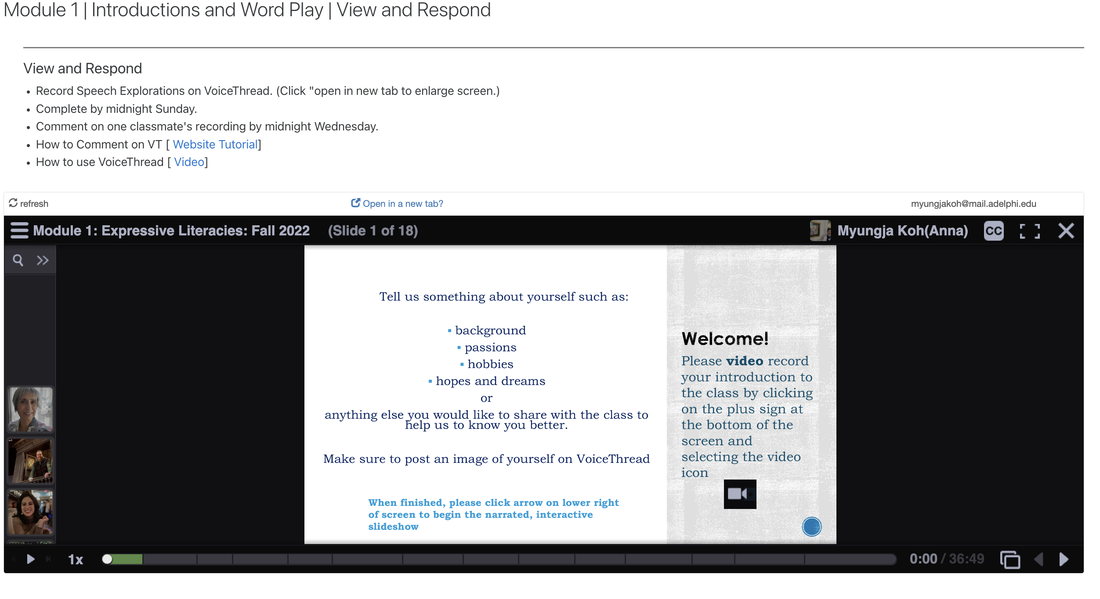
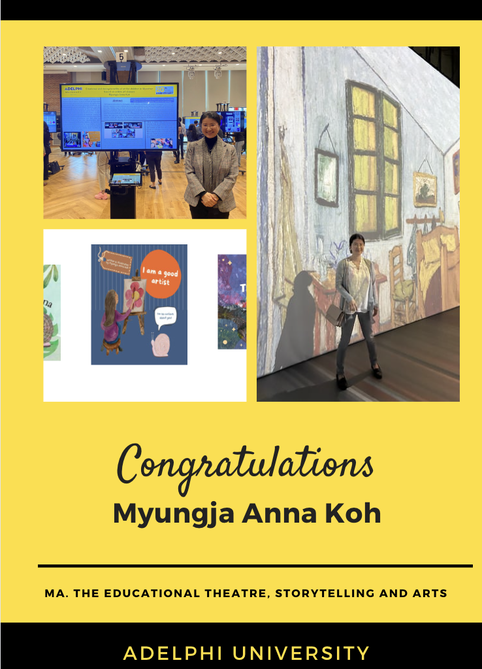
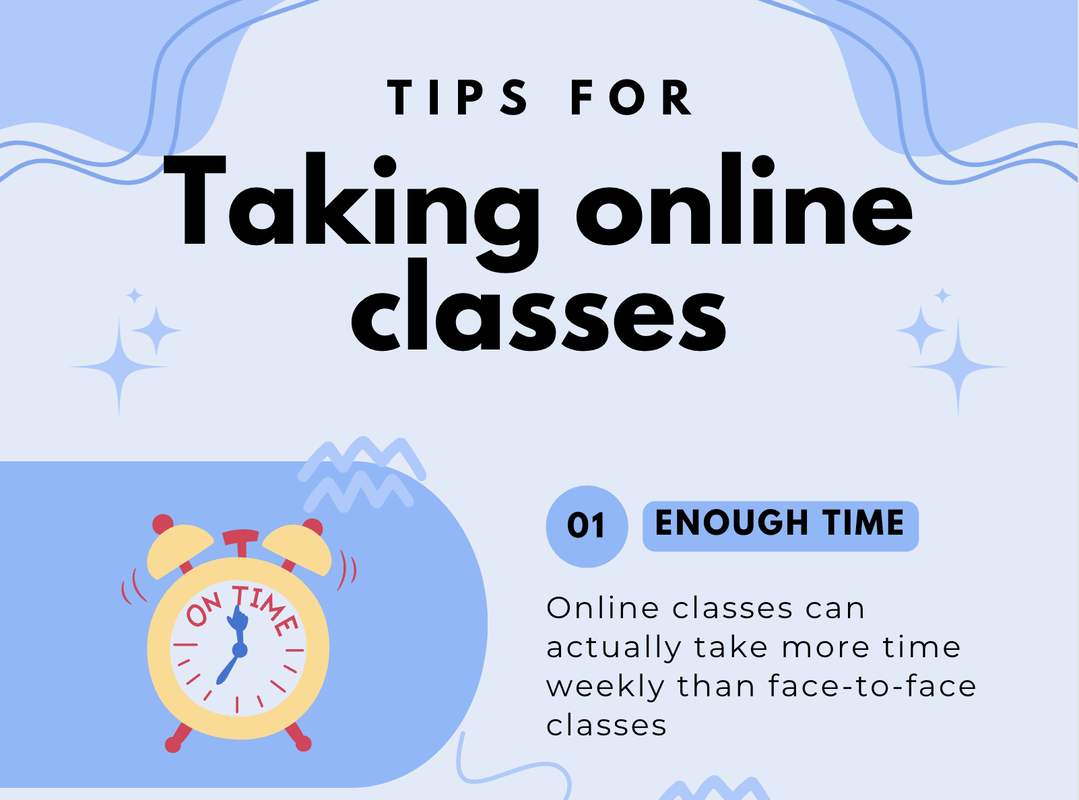
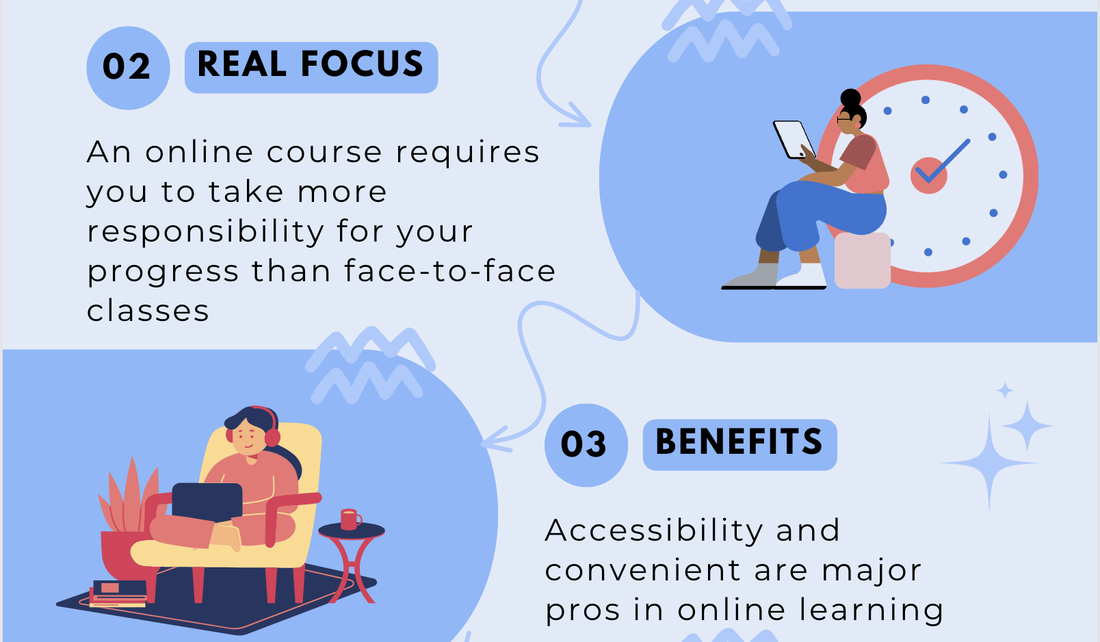
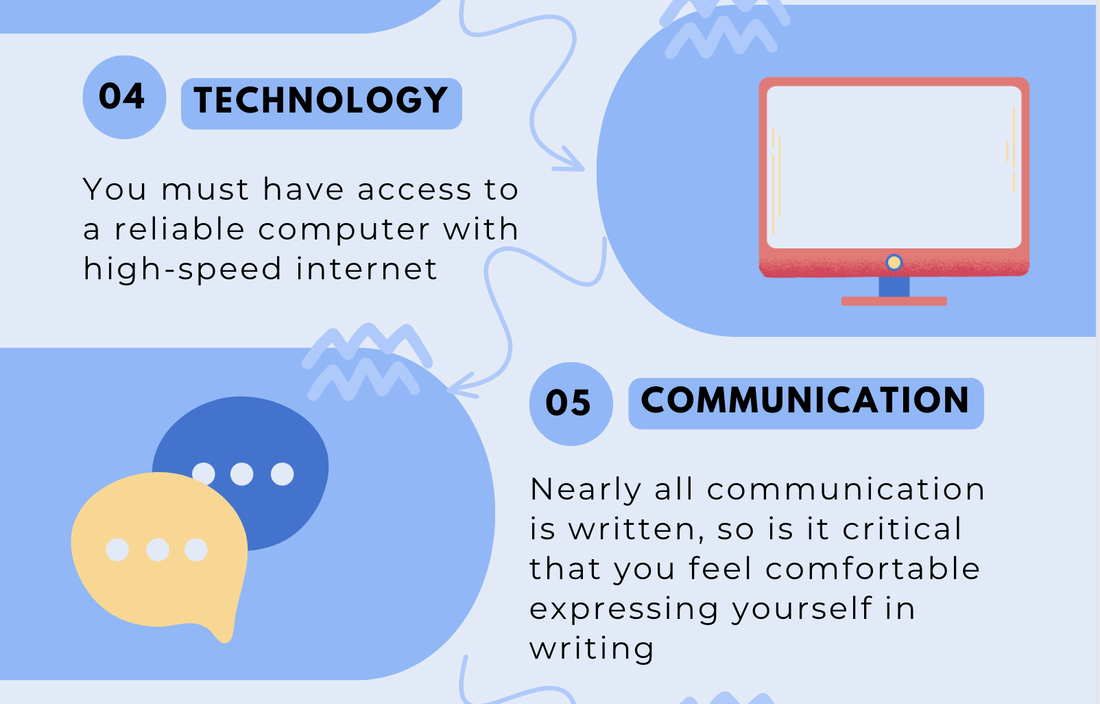
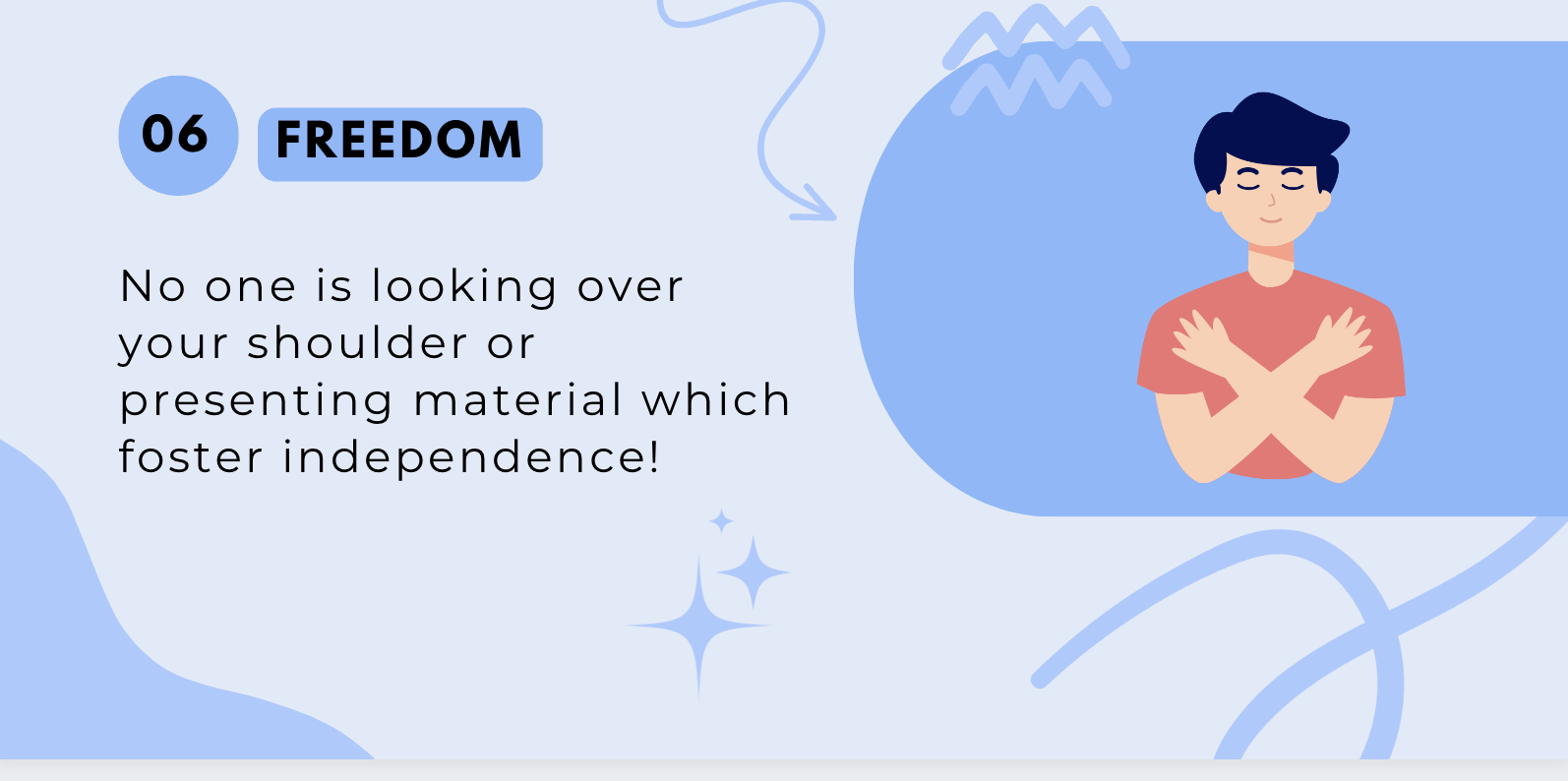

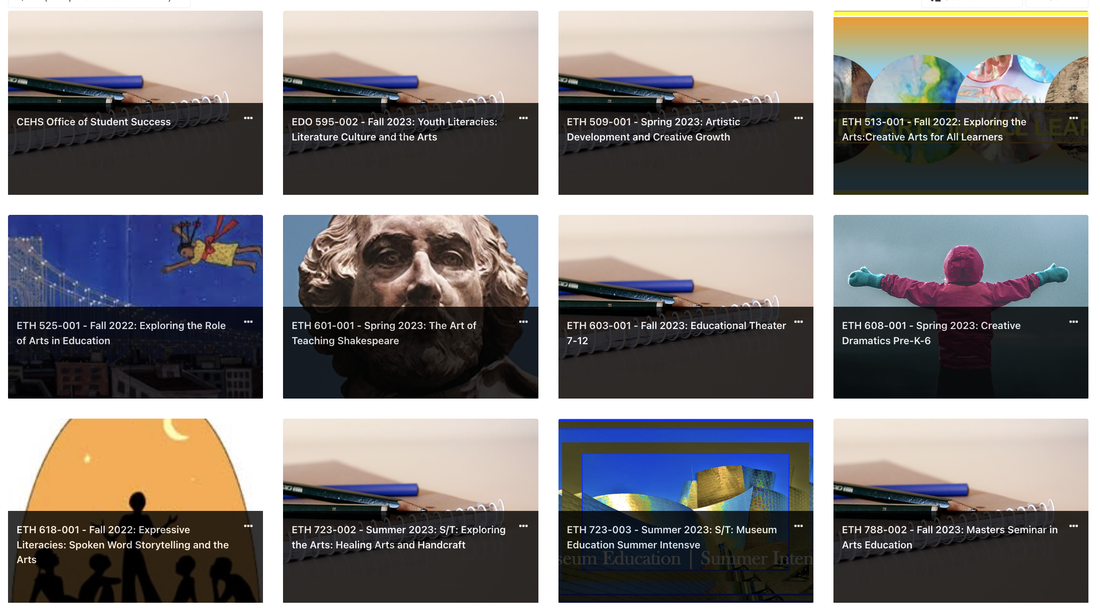

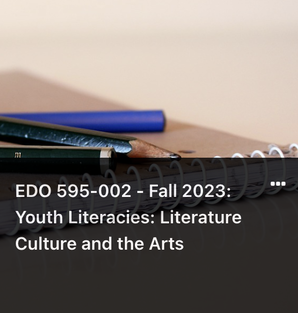
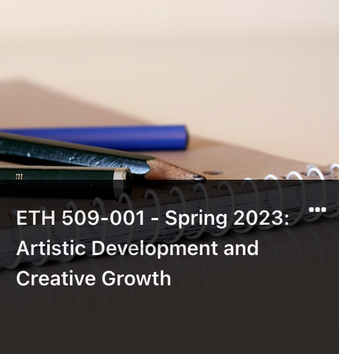
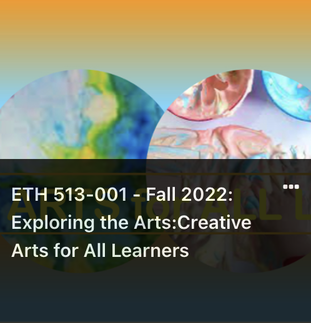
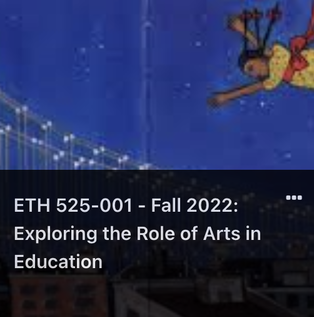
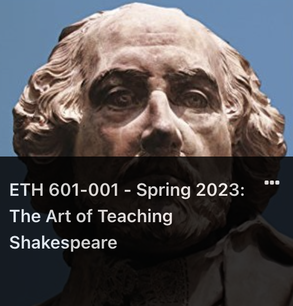
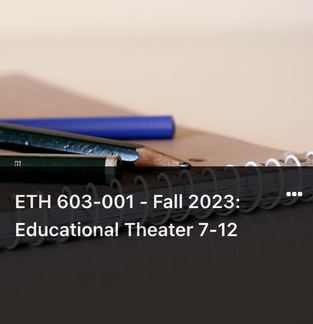
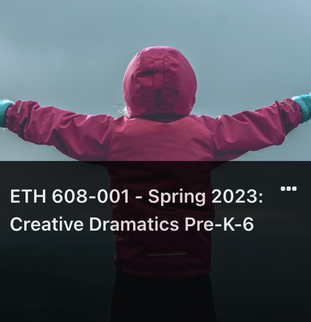
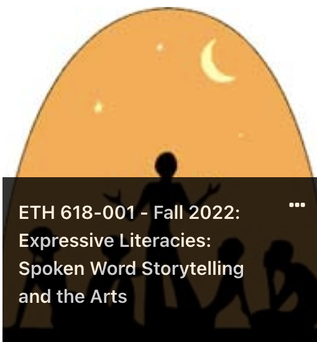
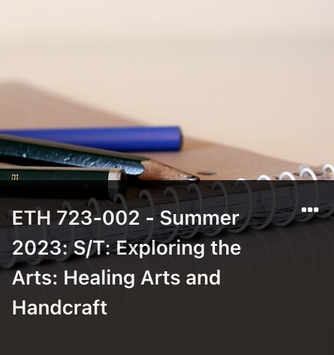
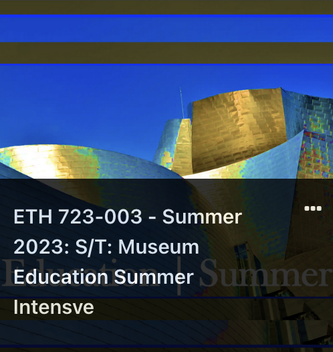
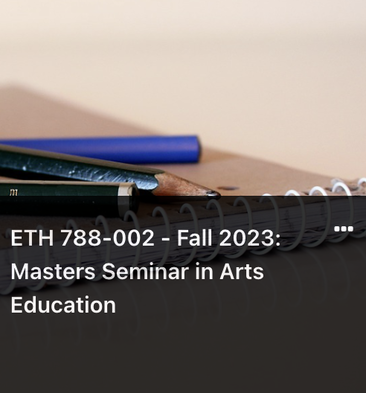















 RSS Feed
RSS Feed